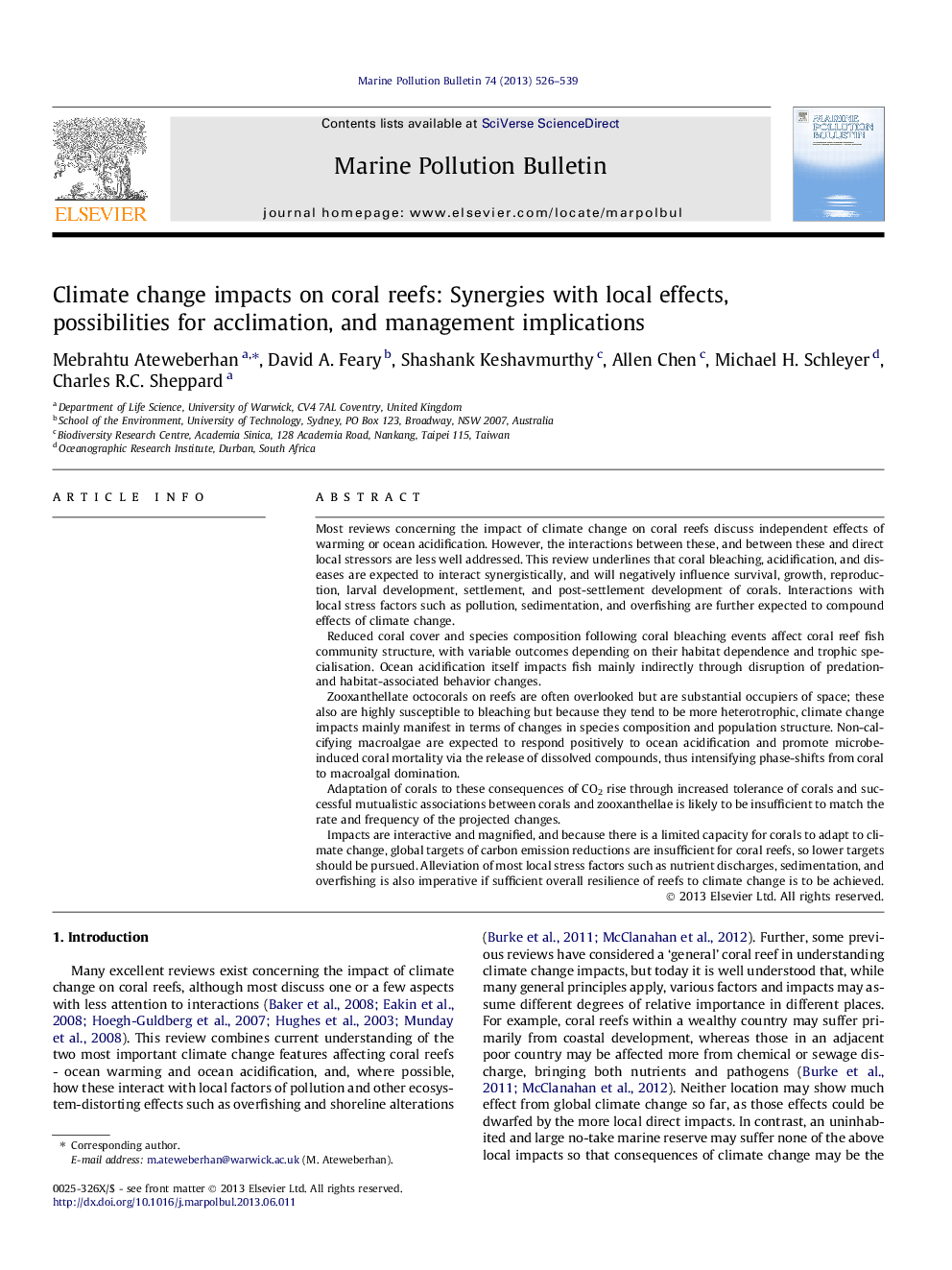| کد مقاله | کد نشریه | سال انتشار | مقاله انگلیسی | نسخه تمام متن |
|---|---|---|---|---|
| 4476777 | 1315641 | 2013 | 14 صفحه PDF | دانلود رایگان |

• Coral bleaching, acidification and diseases, will interact synergistically.
• Interactions with local stress factors will further compound climate change impact.
• Interactive effects should be considered in global targets of carbon emission reduction.
• Alleviation of local stress factors will promote resilience to climate change.
Most reviews concerning the impact of climate change on coral reefs discuss independent effects of warming or ocean acidification. However, the interactions between these, and between these and direct local stressors are less well addressed. This review underlines that coral bleaching, acidification, and diseases are expected to interact synergistically, and will negatively influence survival, growth, reproduction, larval development, settlement, and post-settlement development of corals. Interactions with local stress factors such as pollution, sedimentation, and overfishing are further expected to compound effects of climate change.Reduced coral cover and species composition following coral bleaching events affect coral reef fish community structure, with variable outcomes depending on their habitat dependence and trophic specialisation. Ocean acidification itself impacts fish mainly indirectly through disruption of predation- and habitat-associated behavior changes.Zooxanthellate octocorals on reefs are often overlooked but are substantial occupiers of space; these also are highly susceptible to bleaching but because they tend to be more heterotrophic, climate change impacts mainly manifest in terms of changes in species composition and population structure. Non-calcifying macroalgae are expected to respond positively to ocean acidification and promote microbe-induced coral mortality via the release of dissolved compounds, thus intensifying phase-shifts from coral to macroalgal domination.Adaptation of corals to these consequences of CO2 rise through increased tolerance of corals and successful mutualistic associations between corals and zooxanthellae is likely to be insufficient to match the rate and frequency of the projected changes.Impacts are interactive and magnified, and because there is a limited capacity for corals to adapt to climate change, global targets of carbon emission reductions are insufficient for coral reefs, so lower targets should be pursued. Alleviation of most local stress factors such as nutrient discharges, sedimentation, and overfishing is also imperative if sufficient overall resilience of reefs to climate change is to be achieved.
Journal: Marine Pollution Bulletin - Volume 74, Issue 2, 30 September 2013, Pages 526–539